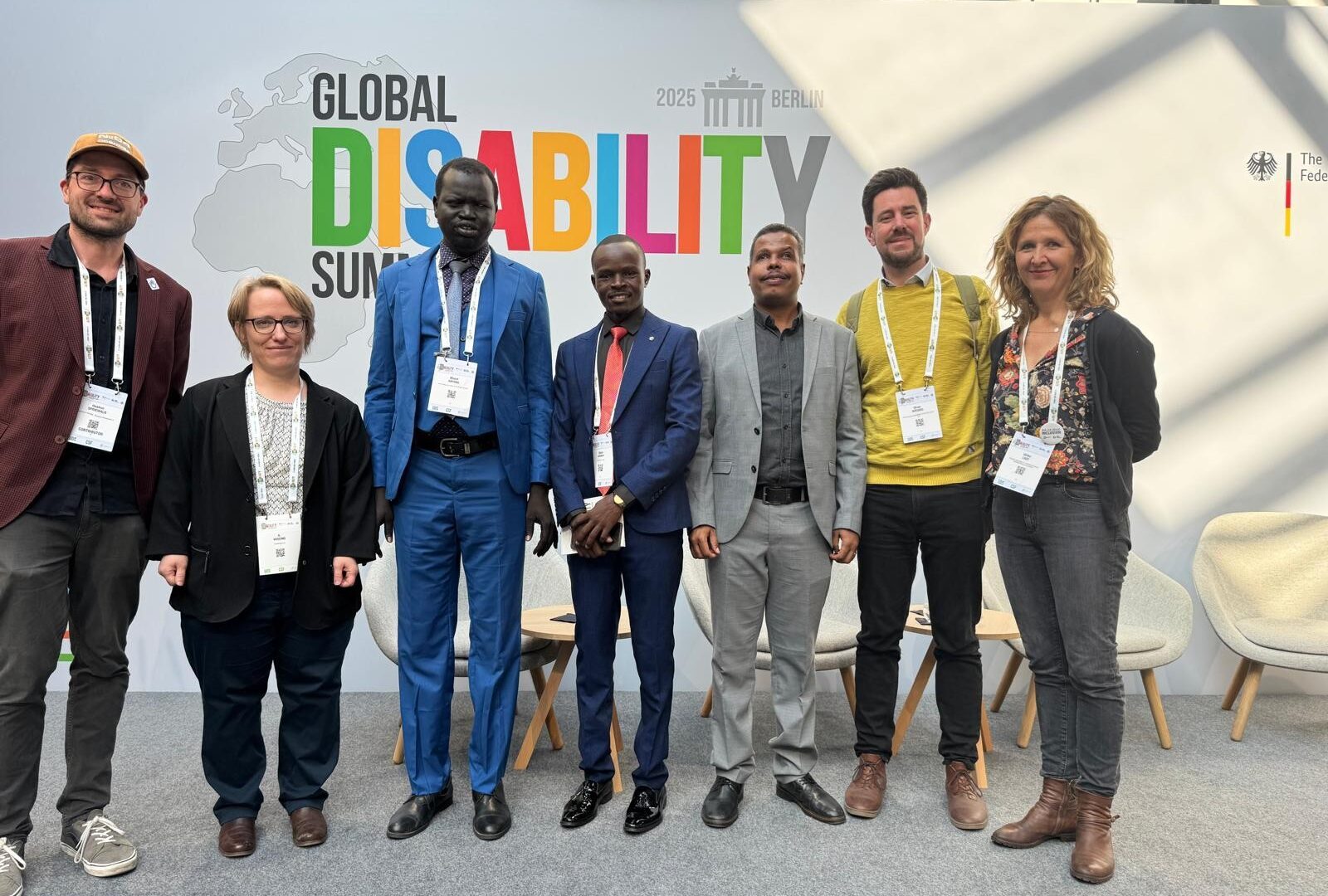From Blueprint to Footprint: One World, One Voice, One Fight for Disability Rights
Category
gds-2025 General South Sudan
© HI
The recent Civil Society Forum and Global Disability Summit were held in Berlin, Germany from 1st to 3rd April 2025, under the auspices of International Disability Alliance, the Governments of Germany and Jordan. Our Phase 4- Leave no one behind! project was also present at the event, including our colleagues from South Sudan joining approximately four thousand seven hundred participants from across the globe at STATION Berlin. In this article, HI’s South Sudan delegation shares their takeaway from the event.
The third Global Disability Summit 2025 in Berlin provided a comprehensive overview of how decreasing humanitarian funding verses increasing humanitarian needs has impacted persons with disabilities globally and in South Sudan in particular. Moreover, the event was not just a gathering, but a powerful platform for reimaging policies and systems to mainstream disability in all sectors.
Handicap International (HI) had a strong presence at both events. Mauot Luis Alier, Disability Inclusion coordinator of our Phase 4-LNOB project, who is also International Disability Alliance (IDA) representative for South Sudan and Ulrike Last, HI’s Global Policy and development lead were among the panelists during the Civil Society Forum on 1st April 2025, addressing critical issues on how to engage Organization of Persons with Disabilities in humanitarian coordination system, factors of vulnerability in humanitarian actions, challenges and opportunities in operationalization of protective safer humanitarian actions.
“Financing disability inclusion in life-saving programming is of great significance and must not be halted.” – Ulrike Last
“As the UNCRPD Convention reaches its 20th anniversary next year, it is crucial that its commitments are fully reflected in humanitarian response. Meaningful engagement of Organization of persons with disabilities (OPDs) in humanitarian coordination system is not merely a request but a requirement.” – Mauot Luis Alier
Key Takeaways from GDS 2025
This global event provided an opportunity for HI’s participant from South Sudan to learn, share experiences, network and connect with key actors as well as donors on possible collaboration. The key take-away from this year’s GDS 2025 in Berlin included:
- 15% Funding Allocation: 15% of the funding for development and humanitarian assistance must be allocated for 15% of the population of persons with disabilities (Amman-Berlin declaration 2025).
- Greater Collaboration: The summit calls for increased partnership to accelerate disability protection and mainstreaming in all sectors, especially at the grassroots level.
- Financing as Lifesaving: Actors should explore pathways to optimize available resources to finance acceleration of disability rights.
- OPD Empowerment: Continuous support for OPDs to advocate for ratification of Amman- Berlin declaration. Climate Change Inclusion: Increase meaningful participation of persons with disabilities in climate change intervention.
- Accessibility: Making technologies and websites as well as cities accessible as enshrined in article 9 of United Nations Convention on the Rights of Persons with Disabilities (UNCRPD).
- Adequate Financing: Civil society Forum affirmed that without funding, there can be no implementation of the UNCRPD. The Forum stresses that disability issues must be adequately and predictably financed across all levels, with explicit budget lines and targets, to end the gap between political will and lived reality.
- Data Collection: The summit voiced the need for using disability-disaggregated data by all actors in all phases of project cycles.
By participating in the summit, HI demonstrates continues support for ensuring that persons with disabilities are not left behind in the global discourse.
HI is committed to advancing disability rights and protective safer humanitarian actions in South Sudan by collaborating with humanitarian actors, including Organizations of Persons with Disabilities in South Sudan.
Text and photo by Obale Musa, HI South Sudan